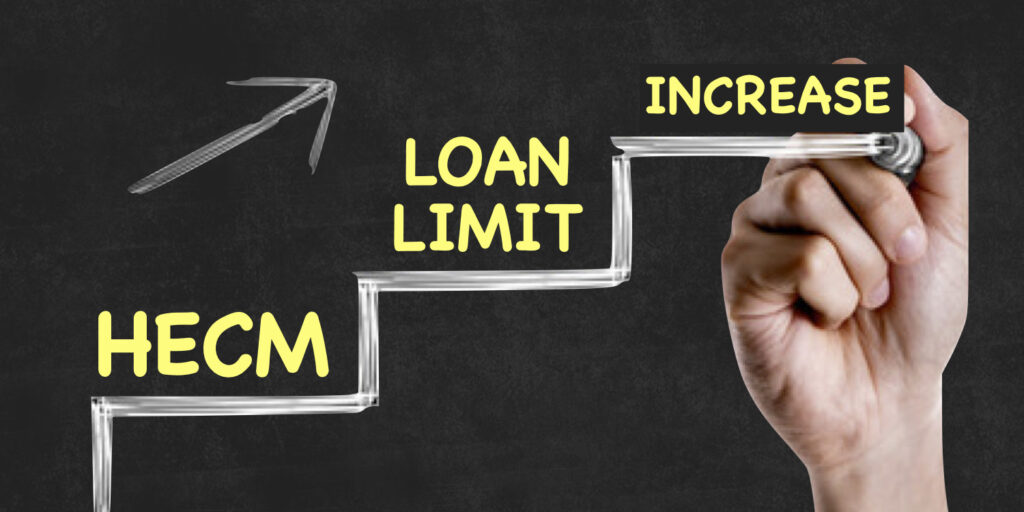Many cheer & some criticize the latest FHA loan limit increase
Mortgagee Letter 2020-42 announced new loan limits for 2021 and once again, the federally-insured reverse mortgage will see its maximum claim amount significantly increased. HECMs with a case number assigned on or after January 1st are eligible for the new national lending limit of $822,375. But wait, you may say- didn’t HUD echo the Trump Administration’s call for Congress to abandon a national lending limit in favor of local or county-limits? Yes, they did. But remember the key word is Congress. Neither FHA nor HUD can unilaterally change the present loan limit scheme, rather legislative approval by Congress is required.
Today we are going to examine three questions: who stands to benefit the most, what role could the geographic concentration of HECM loans play in the future, and will jumbo and proprietary loans suffer as a result?
[read more]
If you originate HECM loans along our nation’s coasts, then congratulations. You are most likely to find eligible homeowners with higher who now stand to have an additional $55.775 of the home’s appraised value considered in the calculation of their principal limit. That would mean a 70-year-old borrower with a home appraised at $850,000 and a 3.25% effective interest rate would have a gross principal limit of $468,753 versus $436,392 in 2019. That’s an increase of over $32,000. This could incentivize homeowners in urban and high-valued markets who wanted access to more of their home’s value to taking out the federally-insured version of the reverse mortgage.
However, within hours of FHA’s announcement, HUD issued a formal press release questioning the wisdom of the increase. While FHA is mandated under the National Housing Act to set the lending limit based on 115% of the area median home value based on the Metropolitan Statistical Area (MSA) and county, HUD expressed their concern in a press release.“FHA has seen consistent increases in loan limits during the past few years, putting it in a position to serve a segment of borrowers that may be better served by the conventional market. FHA’s mission is to support low-to-moderate income borrowers, so why does the law permit FHA to insure mortgages up to $822,375? This is a question for Congress and the taxpayers who stand behind FHA to answer,” said Assistant Secretary for Housing and Federal Housing Commissioner Dana Wade. To clarify while the FHA’s mission is certainly intended to assist low and moderate-income borrowers the HECM statute makes no reference to income or wealth.
With sixty-percent HECM loan maximum claim amounts originating from five states with higher home values increase the likelihood of more claims against FHA’s insurance fund? It certainly could. FHA’s most recent annual report to Congress notes that California alone accounts for 25% or one-quarter of the total maximum claim amounts in HECM loans in fiscal year 2020. Core Logic noted last in August that 3.8% of home loans in California are seriously delinquent-(over 90-days overdue) a six-fold increase from .6% a year earlier. If these loans result in a wave of foreclosures in 20201 values could drop appreciably. Florida, Colorado, Arizona, and Washington state account for an aggregate of 35% of total HECM maximum claim amounts in 2020.
What about private reverse mortgages? The good news is the jumbo and proprietary markets should not be unduly impacted. The potential owners of high-valued properties are typically focused on tapping into more of the value of their home- a substantially larger portion- more so than the consideration of the HECM’s unique features and benefits.
[/read]







1 Comment
Curious as to what FHA thinks is “low to moderate” income? In my 22+ years as a HECM lender I’ve seen many seniors in higher valued homes with what I would consider “moderate” income. Why does FHA or anyone for that matter assume that if your home is worth $822,375 or thereabouts, that your income is high or something other than “low to moderate”?
It’s my understanding that the HECM was designed and instituted to assist seniors in retirement by giving them access to their home equity without the obligation of a monthly mortgage repayment, at least that’s what one of the industry pioneers told me when I first got into the business. Would be a shame if all of a sudden FHA picked winners and losers of this opportunity based solely on the value of one’s home and not take a look at the entire financial position of the senior.